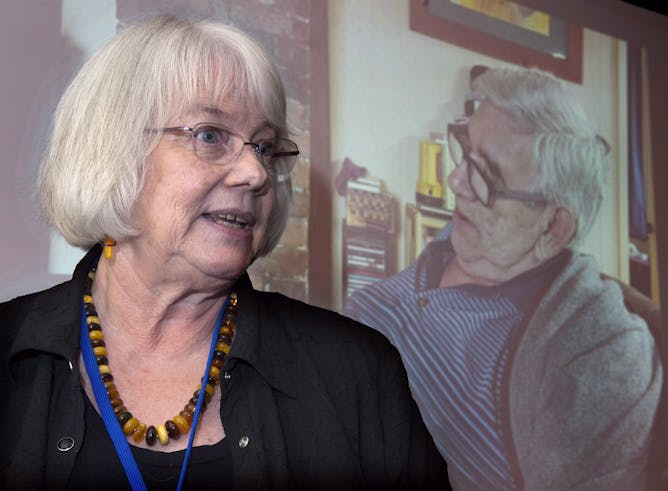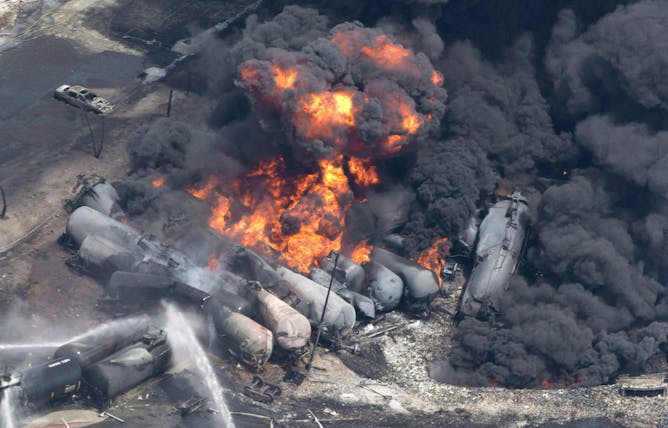|
The right to die has been the law in Canada for almost two years. But today in The Conversation Canada, Jocelyn Downie of Dalhousie University and Jennifer Chandler of the University of Ottawa says the way the law is worded is too ambiguous when it comes to who can be eligible to receive a medically assisted death. The authors says provinces should follow the lead of Nova Scotia, which has clarified the eligibility criteria.
Aeroplan got some bad press a few weeks ago when it was revealed that a customer survey asked plan members their views on immigration and other topics. Alina Nastasoiu of McMaster University says consumer research has a long history of learning about customers’ values that may seem unrelated to the product doing the research.
Jeremy Lawrence Caradonna of University of Victoria explains how as organic farming is becoming more prevalent, it’s starting to adopt some practices of traditional farming. But the trend is working the other way as well – traditional farmers are following some environmentally friendly tactics once used only by organic farmers.
And finally…this Saturday is what’s known as the National Day of Mourning. Deborah McPhee of Brock University explains that there are still too many people who face danger – and even death – in the workplace.
Regards,
|

The province of Nova Scotia is leading the way in defining the terms of Canada’s ambiguous law on medically assisted dying. Here Liana Brittain is seen in Halifax in front of a projection of her late husband Paul B. Couvrette, who received a medically assisted death in P.E.I. on Sept. 15, 2017.
(THE CANADIAN PRESS/Andrew Vaughan)
Jocelyn Downie, Dalhousie University; Jennifer Chandler, University of Ottawa
In Nova Scotia, it's clearer now who qualifies for medical assistance in dying. Will the other provinces and territories follow suit?
|

Aeroplan’s recent survey on consumer habits became a scandal for the company after people complained the questions normalized intolerant attitudes about immigration and male dominance over women.
(Shutterstock)
Alina Nastasoiu, McMaster University
The recent Aeroplan survey offended many consumers with questions they felt normalized intolerant views. But consumer research has a long history of learning about customers' values.
|

Some farmers are starting to incorporate organic practices into their operations.
(Pexels)
Jeremy Lawrence Caradonna, University of Victoria
Some conventional vegetable farms in Canada are starting to use organic methods in their operations.
|

The railway at the centre of the 2013 Lac-Megantic explosion, Montreal Maine and Atlantic, was recently ordered to pay fines totalling $1.25 million after being convicted of violating the Fisheries Act due to crude oil leaking into nearby bodies of water. Employers and companies are increasingly being held responsible for workplace accidents.
THE CANADIAN PRESS/Paul Chiasson
Deborah McPhee, Brock University
Every day people around the world go to work expecting to return home safely to their families. But the reality is that many never return due to workplace accidents that could have been prevented.
|
Arts
|
-
Scott Davie, University of Sydney
Whether it is art or pop, high or low, terms such as creativity, authenticity, innovation and uniqueness can help us judge a work of music. And Kendrick Lamar's DAMN. brims with these qualities.
|
|
Politics
|
-
Garret Martin, American University School of International Service
Trump is rolling out the red carpet for Macron's visit to Washington. But the French president has some tough talks ahead, as the two leaders discuss thorny issues like trade and the Iran deal.
|
|
Science + Technology
|
-
Jesse van de Sande, University of Sydney; Nicholas Scott, University of Sydney
As galaxies get older they get rounder, and fall victim to the middle-aged spread that catches many of us humans here on Earth.
|
|